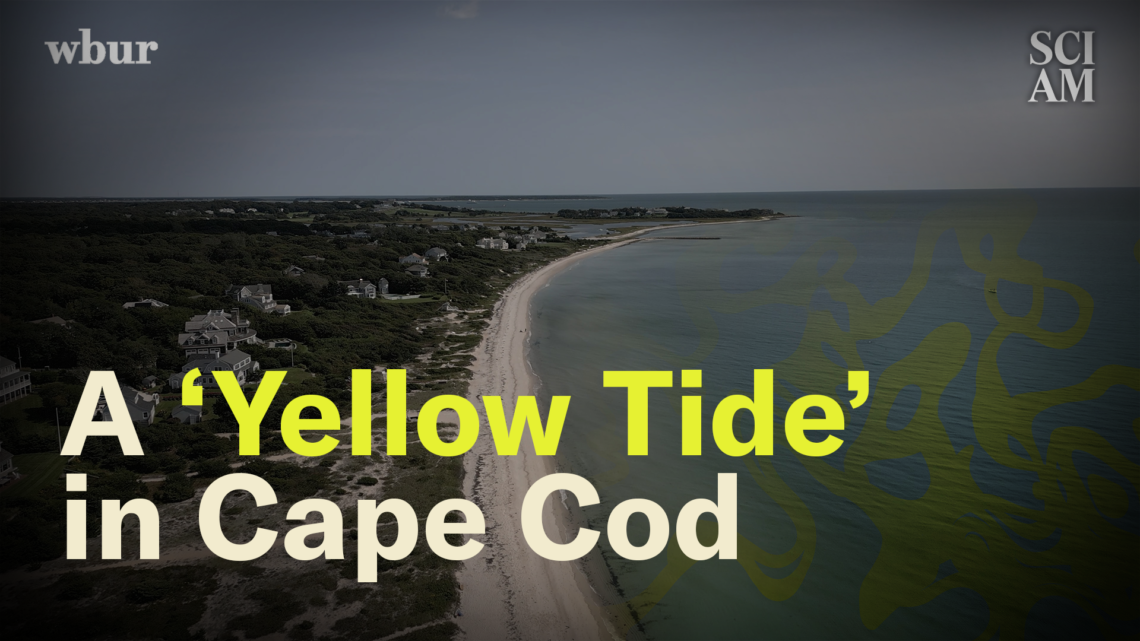This story was co-published with WBUR in Boston. Read its coverage on efforts to improve the Cape’s water pollution, including one innovative town considering “pee-cycling.” The documentary short was supported by the Pulitzer Center.
Javier Lloret: There’s going to be bad smells. There’s going to be fish kills. There’s going to be a lot of algae getting entangled in your boat, in your propeller, in everything. And it’s not a nice view, you know. So in a way, we’re decreasing the value of the land, which is precisely the same value that brought people here to enjoy an enjoyable summer.
Narrator: Javier Lloret is a research scientist at the Marine Biological Laboratory on Cape Cod, a hook-shaped peninsula off Massachusetts, about 70 miles southeast of Boston.
On supporting science journalism
If you’re enjoying this article, consider supporting our award-winning journalism by subscribing. By purchasing a subscription you are helping to ensure the future of impactful stories about the discoveries and ideas shaping our world today.
Lloret: One of the things that we’re planning to do here, right in this location, is to collect some groundwater samples … just to check on the overall health of the, of the ecosystem there.
And here we go. That’s our filter sample. We will analyze for the nutrients.
Narrator: Nearly 230,000 residents live on the cape year-round. But in 2022 more than four million tourists visited its and beaches and shores. Tourism is big business here, bringing in $1.4 billion to the county. And generally those numbers grow each year.
But the cape has become a victim of its own success. More visitors and more homeowners have brought unchecked pollution to the area, threatening to permanently destroy its beaches and estuaries.
[CLIP: Reporter: “A new report finds Cape Cod’s bays and ponds continue to suffer from water pollution.”]
[CLIP: Reporter: “Cape Cod’s bays and ponds are polluted with excess nutrients.”]
[CLIP:…
Read the full article here







